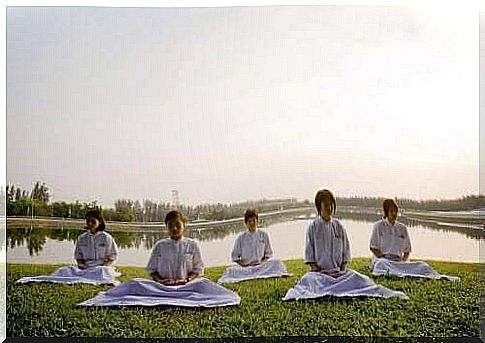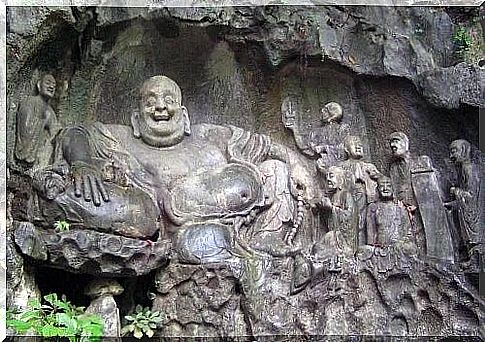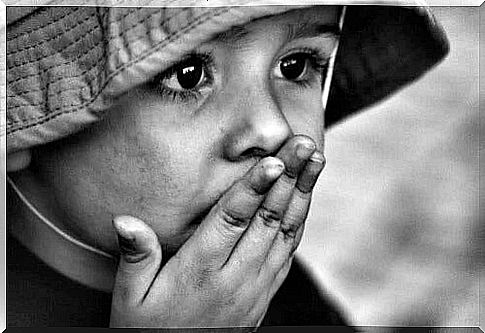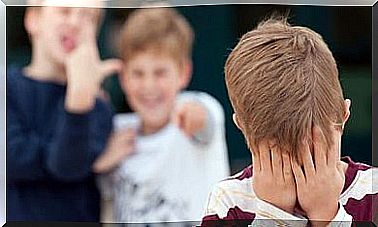Do You Know What Buddhism Teaches For Your Child’s Education?

A wise phrase from Buddhism says that “ Rich is not the one who has the most, but the one who least needs it.
“. Guided by this precise teaching, we can find a wide variety of learnings in your philosophy of life that will help us to better educate our little ones.
When we analyze the word “Buddha”, which comes from the term “budh”, we find that its true meaning is “The Awakened” or “Awakening”. Under this premise, we can find excellent educational ways to improve the life of a child, who can be much happier and more autonomous if we apply some of their precepts to their training.
Advantages of Buddhism for educating children
Raising your child to follow any of the precepts of Buddhism does not imply that you have to internalize this entire philosophy and convert to its train of thought. In fact, it’s about adopting some of his most beautiful teachings to make your child happier, autonomous and self-aware.
Allow the child to set standards
It is evident that a child must get used to living in a world with laws, many of them previously imposed. However, Buddhism recommends that she herself be able to impose some rules of her own.
What do you get out of this? This fact allows the little one to gain more awareness and become more aware of himself. Thanks to this, he can learn to think for himself, find what is best for him at his own pace of learning, and can speak according to his true beliefs, not just those that are socially imposed on him.
never neglect your spirit
It is necessary for the little one to cultivate the spirit and spirituality from an early age. For that, there’s nothing like being an example. Otherwise, other things will take its place. Among these things, the search for easy pleasure, excessive consumerism, insecurity in the face of fear, inability to face pain, excessive narcissism can gain space…
Buddhism invites you to be at peace with yourself through spiritual work.
order of thought
Have you ever felt your head flooded with uncontrollable confusion? Have you ever felt unable to unravel your thoughts? Buddhism invites you to order them, interpret them, understand them, and internalize them.
We must prevent our own thoughts from becoming our greatest enemies. It is necessary to disconnect from those who are negative and emphasize the positives. And we must convey this to the little ones through ideas and resources so that they learn to focus on their dreams and beliefs.
He used to smile
If you look at a Buddha figure, you will always see it smiling. There is no doubt that this simple act fills everyone around us with joy, and it costs next to nothing. So it’s a great idea to pass on to kids.

A simple smile can accomplish much more than any kind of complicated and intricate strategy. It can be an example of approval, good humor, affection, love… Isn’t it nice to see a happy and smiling child? So start with yourself and see how you can make your child happy with it.
Forget about stress and worry, and find spaces to practice with your child. You will find that this teaching of Buddhism is essential and offers positive results in a short amount of time.
Channel negative emotions
At some point in our life, negative emotions show up. It’s impossible not to feel frustrated, jealous or angry from time to time. However, you should never let these situations dominate. It is important to channel them and normalize them.
The same truth is true for children. Buddhism teaches how to channel negativity so that it becomes something normal and temporary, but never the predominant fact in a person’s mind. This is why the child must be taught that feeling bad is not a bad thing, but it must be temporary and brief.

Buddhism offers precious and infinite teachings that can be perfectly adapted to early childhood education in order to form happier, fuller, autonomous and self-aware children with the ability to think, dialogue and learn.
You don’t have to be a Buddhist, because religion in that case isn’t that important. The basic point is to be able to adapt these teachings and others to your child’s education. Each child is a world and our task is to make them happy and full of life.









